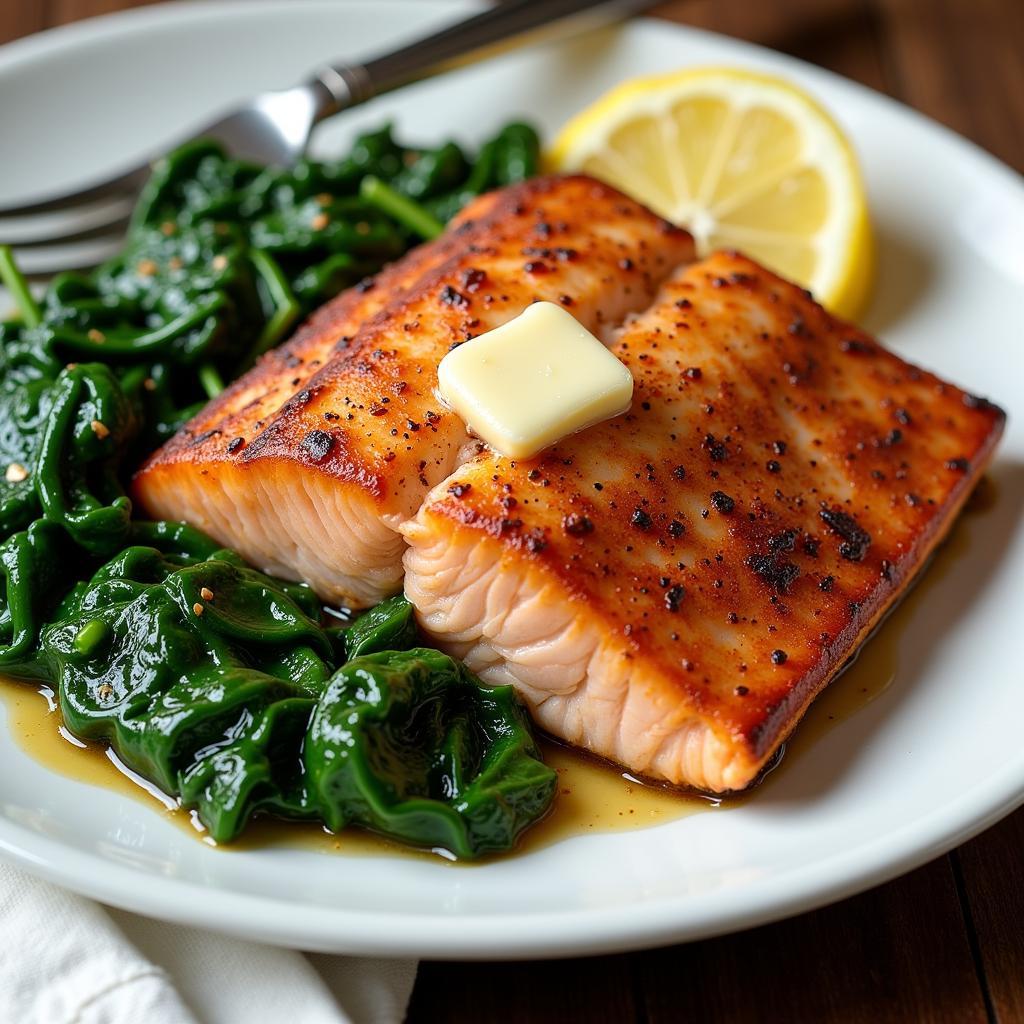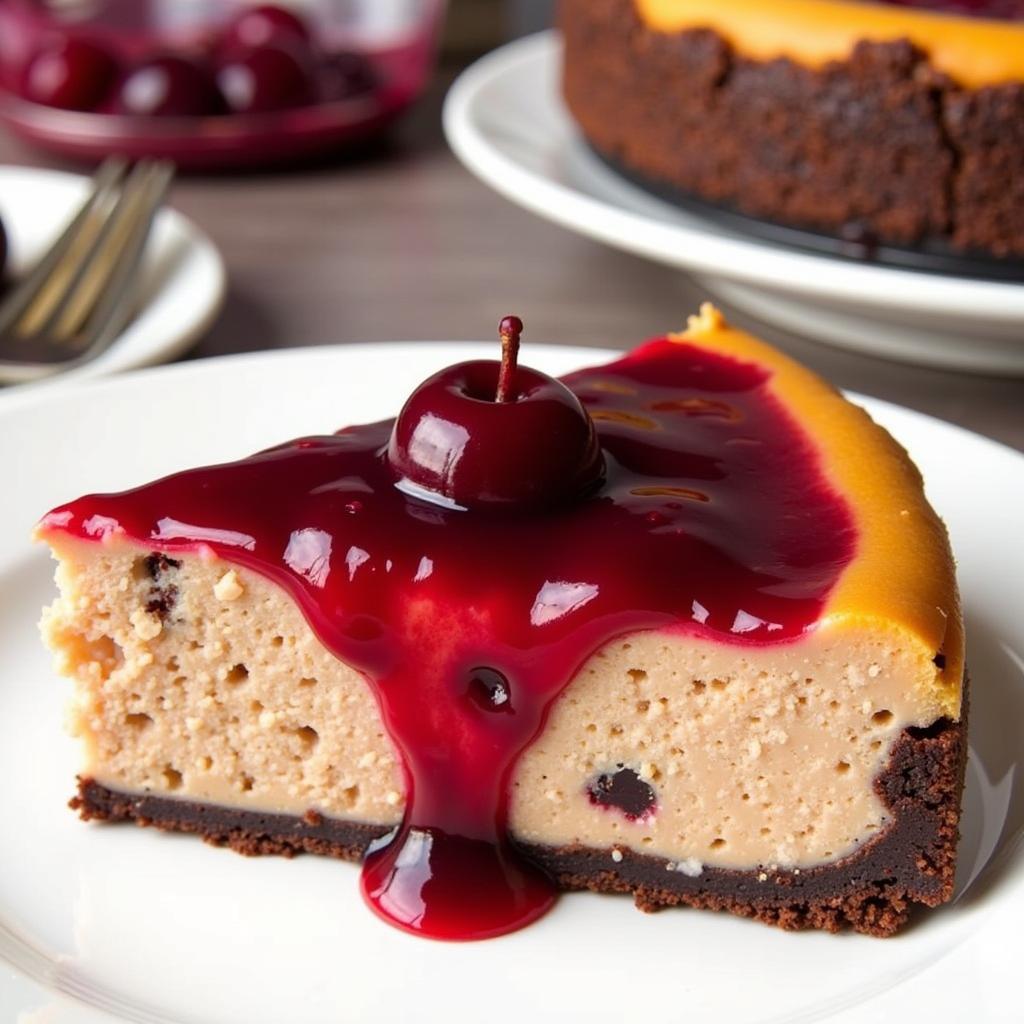Alliteration About Food elevates the dining experience from simple sustenance to a playful exploration of flavors and language. From crispy crackling chicken to luscious lemon linguine, the rhythmic repetition of sounds adds a delightful dimension to our culinary adventures. Whether you’re a seasoned chef or a casual cook, incorporating alliteration can spice up your recipes and make your meals more memorable. Let’s delve into the delicious world of alliteration and discover how it can transform your relationship with food.
If you’re looking for catchy names, check out our resources on pasta food truck names.
Alliterative Appetizers: Starting Strong with Sound
Appetizers set the tone for a meal, and alliterative names can amplify the anticipation. Imagine serving “Spicy Sriracha Shrimp Skewers” or “Creamy Carrot and Coriander Soup.” The repetition of sounds creates a sense of harmony and playfulness, making the dishes even more appealing. These catchy names also make them easy to remember and share with friends, adding a touch of verbal flair to your culinary creations.
Main Course Magic: Making Meals Memorable
Alliteration isn’t limited to appetizers. It can elevate your main courses as well. “Barbecued Brisket with Brown Butter Beans” or “Pan-Seared Salmon with Sautéed Spinach” are just a couple of examples. Think about the textures and flavors of your dishes and let the words flow naturally. You might be surprised at the creative combinations you come up with.
 Savory Salmon Supper with Sautéed Spinach
Savory Salmon Supper with Sautéed Spinach
Delicious Desserts: Sweet Sounds to End the Meal
Desserts are the grand finale of any meal, and alliteration can make them even more delightful. “Fluffy Fudge Fantasies” or “Chocolate Chunk Cheesecake” are just a few examples that roll off the tongue and tantalize the taste buds. Alliterative dessert names also add a touch of whimsy and fun, making them perfect for parties and celebrations.
Why Alliteration Works: The Psychology of Sound
Why is alliteration about food so effective? The answer lies in the psychology of sound. Repetition creates a sense of rhythm and predictability, which our brains find pleasing. It also makes the words more memorable, so you’re more likely to recall and share those delicious dish names. Furthermore, alliteration can evoke specific emotions and associations, further enhancing the dining experience.
 Chocolate Chunk Cheesecake Delight with a Cherry Topping
Chocolate Chunk Cheesecake Delight with a Cherry Topping
Beyond the Plate: Alliteration in Food Branding
Alliteration isn’t just for home cooks. Food brands often use this technique to create catchy slogans and memorable product names. Think of brands like “Krispy Kreme” or “Betty Crocker.” These names are instantly recognizable and stick in our minds, thanks to the power of alliteration.
Need inspiration for your food business? Take a look at our suggestions for indian food restaurant names.
Alliteration About Food: Frequently Asked Questions
1. What is alliteration in food? Alliteration is the repetition of consonant sounds at the beginning of words or stressed syllables in food names or descriptions.
2. Why is alliteration used in food? It makes food names more memorable and appealing, enhancing the overall dining experience.
3. Can I use alliteration in my own recipes? Absolutely! It’s a fun and creative way to make your dishes stand out.
4. Are there any examples of alliteration in food branding? Yes, many food brands use alliteration, such as “Krispy Kreme” and “Betty Crocker.”
5. How can I become better at using alliteration? Practice makes perfect! Experiment with different words and sounds to find combinations that work for you.
6. What are some tips for using alliteration effectively? Keep it natural and avoid forcing it. Focus on the flavors and textures of your dish and let the words flow.
7. Where can I find more examples of alliteration with food? Check out our article on alliteration with food for more inspiration.
Conclusion: A Feast for the Ears and the Palate
Alliteration about food is more than just a linguistic trick. It’s a way to enhance our enjoyment of food, making every meal a feast for the senses. From the simplest snacks to the most elaborate dishes, alliteration can add a touch of magic to our culinary creations. So, next time you’re planning a meal, try incorporating some alliterative flair. You might be surprised at how much it elevates your dining experience.
Looking for creative names for your food band? Explore our collection of food band names puns.
Need assistance? Contact us 24/7. Phone: 02437655121, Email: minacones@gmail.com, Address: 3PGH+8R9, ĐT70A, thôn Trung, Bắc Từ Liêm, Hà Nội, Việt Nam.